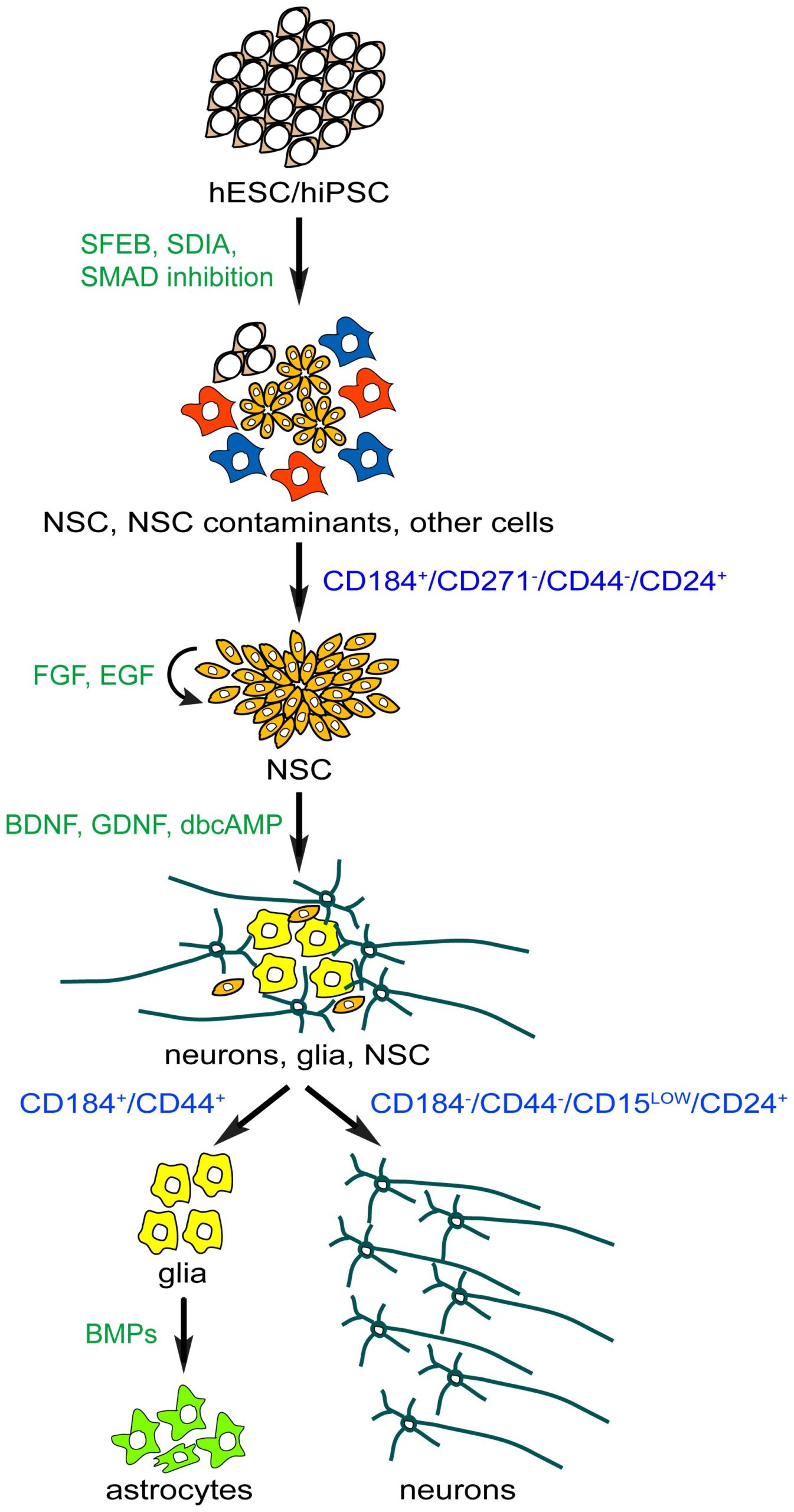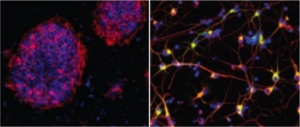The Yuan lab seeks to identify pathways and targets for the development of neurodegenerative disease therapeutics. Alzheimer’s disease pathogenesis is not wholly understood, and research is limited by difficulties in obtaining live neurons from patients, as well as an inability to comprehensively model the disease. We meet these challenges through the use of induced pluripotent stem cell (iPSC) technology. IPSCs can be derived directly from adult tissues and guided to differentiate into various cell types to replace damaged tissue. Moreover, these cells hold great promise for preclinical research, as they offer the prospect of an unlimited amount of human neurons and glia (supporting brain cells) for drug testing.
The Yuan lab is particularly interested in the beginning stages of Alzheimer’s disease, and studies its early pathogenesis with a unique cell-surface sorting method for iPSCs. This method enables the isolation and enrichment of highly purified neural stem cell, neuron, and glia populations.
One application of this powerful approach is our human neuronal model of tauopathy. Tauopathies—including Alzheimer’s disease—are neurodegenerative disorders that develop through the defective sorting and aggregation of tau protein. We aim to better understand the mechanisms of tau misfolding and aggregation by introducing disease-modeling gene mutations into neuronal cultures derived from human IPSCs.
This system provides a human in-vitro model for studies of tauopathy-based neurodegeneration. Because Alzheimer’s disease can take decades to manifest in patients, we use iPSC technology to observe relevant phenotypes throughout the disease stages, and to test therapeutic drug compounds.

Team
Dr. Shauna Yuan Associate Professor, Principal Investigator
Dr. Swathy Babu Post-Doctoral Associate
Dr. Avinash Singh Post-Doctoral Associate
Keenan Walker Undergraduate

